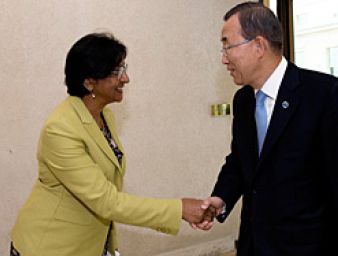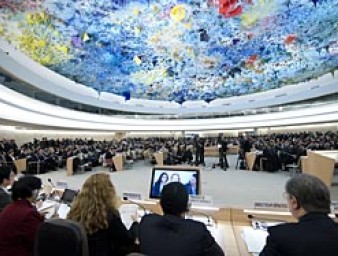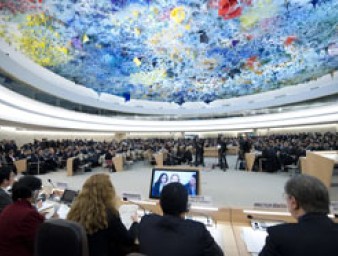2011 was a year critical for human rights
05 March 2012
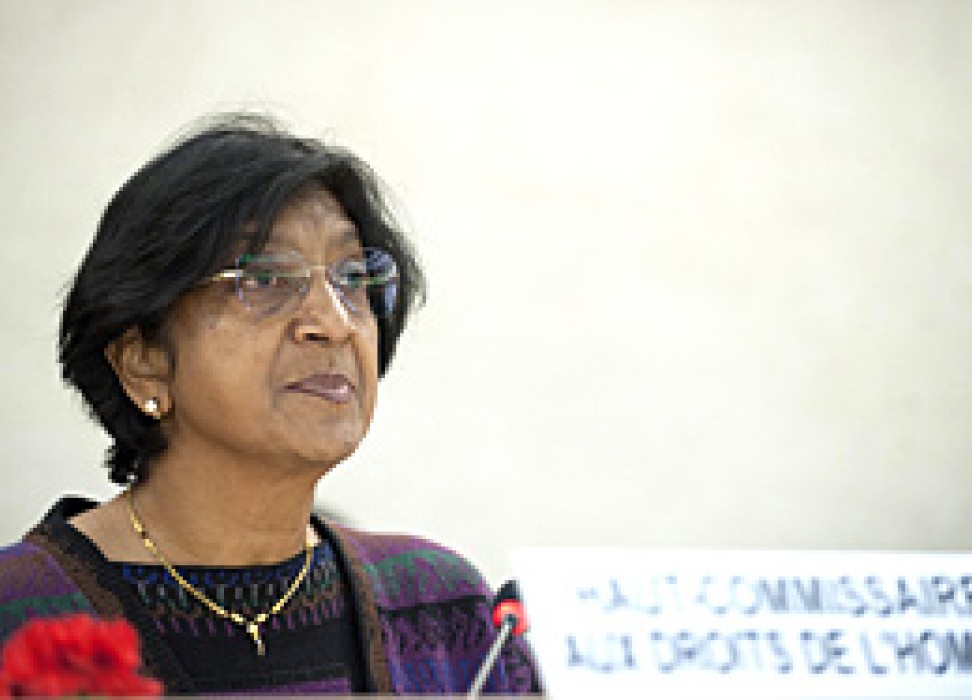
“2011 was a year of substantial challenges to human rights linked to the global economic, climate, energy and food crises, famine in the Horn of Africa, armed conflict, racism and xenophobia, and lingering poverty,” said UN Human Rights Chief, Navi Pillay. “It was also a year when we witnessed the mobilization of civil society contesting repressive power structures and failed forms of governance, particularly in the Middle East and North Africa. In some countries, legitimate demands for freedom, equality and justice were met with extreme violence and repression.”
The High Commissioner presented her annual report to the 19th session of the Human Rights Council on 2 March. She highlighted key developments in the work of her office to address global human rights issues. Her presentation was followed by an interactive dialogue with Governments and civil society representatives.
She announced that in 2011, the UN Human Rights office supported the creation of five new thematic and country mandates of the Council; the establishment of a working group on business; and the creation of commissions of inquiry for Libya and Syria. The first cycle of the Universal Periodic Review came to completion with a 100% participation rate.
“The treaty body system will continue to grow with more ratifications, reporting and the development of new international instruments. This represents a significant accomplishment for human rights. However, my Office's ability to support the treaty bodies has become unsustainable and the human rights protection offered by the treaty bodies will be weakened unless changes occur,” Pillay warned.
The High Commissioner said she was concerned by the rise in xenophobia and related discriminatory practices worldwide, as well as the marginalization of people of African descent, indigenous peoples, national or ethnic, religious and linguistic minorities, persons with disabilities, older persons and individuals on the basis of their sexual orientation or gender identity.
Pillay stressed the importance of taking a human rights-based approach to development to address current economic, social and political challenges, noting that the 2012 World Conference on Sustainable Development (Rio+20) offered an opportunity for world leaders to focus on mainstreaming human rights.
“I urge Member States to strive for coherence between efforts to advance the green economy, on the one hand, and human rights on the other; to recognize that policies and measures adopted to advance sustainable development must be firmly grounded in, and respectful of human rights, including the right to development,” she said.
The UN Human Rights office also concentrated its efforts to persuade Member States to de-criminalize irregular migration and provide effective alternatives to detention, especially for children and other vulnerable groups of migrants.
The Office made considerable advancements in combatting violence, insecurity and impunity. It supported the transitions to democracy in the Middle East and North Africa; advised on transitional justice in Burundi; on impunity in the Democratic Republic of Congo and Haiti; and assisted Colombia which adopted the Victim’s Rights and Land Restitution Law to address the right to reparation for victims of armed conflict.
Pillay stressed the importance of protecting civilians. “States have an obligation to protect their citizens from threats to their security in a manner that respects human rights,” she said. “My Office has assisted States develop and implement security policies, including counter-terrorism measures in accordance with international human rights law.” She however expressed concern about the rights of detainees at Guantanamo Bay and disappointment at the failure to close the detention facility.
She added that her Office has contributed to the implementation of Security Council mandates for the protection of civilians, in particular its Resolution on Women, Peace and Security to enhance the protection of victims of sexual violence in conflict situations and accountability for such violations.
The High Commissioner mentioned that she established a new office in Tunisia but confirmed that her office in Nepal will close end of March. She added that the Government of Yemen has invited her to establish an office in the country.
“Let me conclude by noting that my Office strives for efficient use of existing resources in the exercise of my mandate. However, the continued increase in the tasks requested of my Office has tested the limits of our ability to absorb mandates without commensurate resources,” she said. “I appeal for a commitment to ensuring that adequate resources are attached to each of our vital mandates.”
5 March 2012
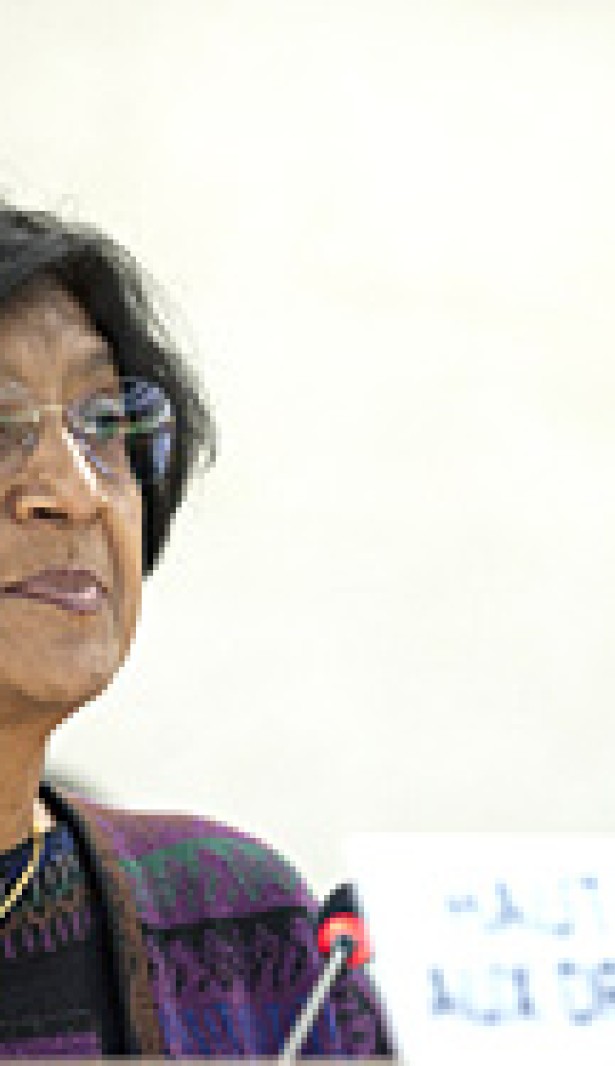
VIEW THIS PAGE IN:

